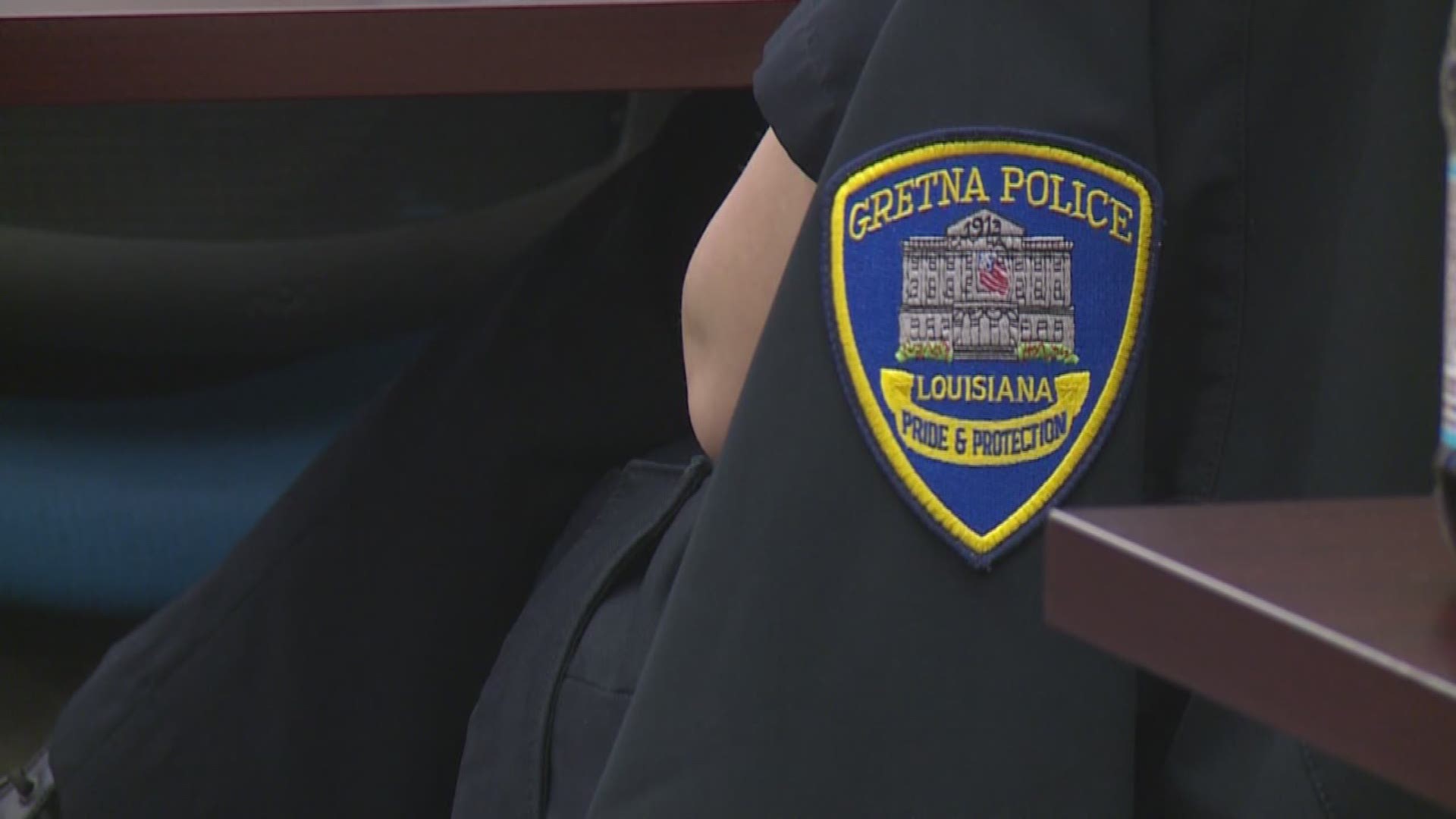GRETNA, La. — Gretna Police have been under a microscope since Hurricane Katrina, leading up to a National Geographic story that called Gretna “the arrest capital of the United States.”
Police leaders are taking the initiative to change that perception and the culture within the department.
“It took a lot of guts,” Dr. Peter Scharf said. “A lot of police departments don’t want outsiders coming in and asking a lot of weird questions.”
Dr. Scharf is a criminologist that has worked with many law enforcement agencies dealing with issues like police brutality and racial bias. So when the Gretna Police Department asked him to lead a training seminar to improve their relationship with the African American Community he jumped at the opportunity.
“We admire these officers and commanders,” Scharf said. “They took the risk to trust us.”
Scharf teamed up with author and activist Ameer Baraka. The two admit they’re an unlikely pair.
“Think about that. He’s a Harvard graduate and I’m an ex-con,” Baraka said. “I only have a GED. I’m dyslexic, but there is a communication we have.”
Baraka and Scharf are working together to bridge the gap between Black Lives Matter and Blue Live Matter, especially after multiple incidents within the Gretna Police Department that led to officers being fired or demoted for their actions in the field.
“When a police department gets into trouble, the first thing they do is call in external forces to fix it,” Scharf said. “The cultures do not change from the outside.”
One of the ways Scharf and Baraka work to facilitate change within police departments is to work on emotional intelligence.
“Empathy. Having empathy is one of the five pillars of emotional intelligence … and people no longer talk or respect on another,” Baraka said.
He stresses the importance of everyone, not just police officers, being a public servant and what that means when it comes to confrontation.
“When they’re are dealing with that crisis situation, when I talk about positive change situations I talk about your values,” Barak said. “If you don’t have good pro-social values you’ll do anything.”
Officers analyze video from other departments and discuss how to diffuse potentially violent situations.
“We’re trying to equip people with the tools they need to go out and do a very difficult job,” Scharf added.
It’s a two-way street. Baraka teaches these same principles inside jails and to groups of regular citizens to teach them about conflict resolution through emotional intelligence.
Representatives from the Gretna Police Department said they’re going to take this information and strategize to improve their relationship with the community going forward.

